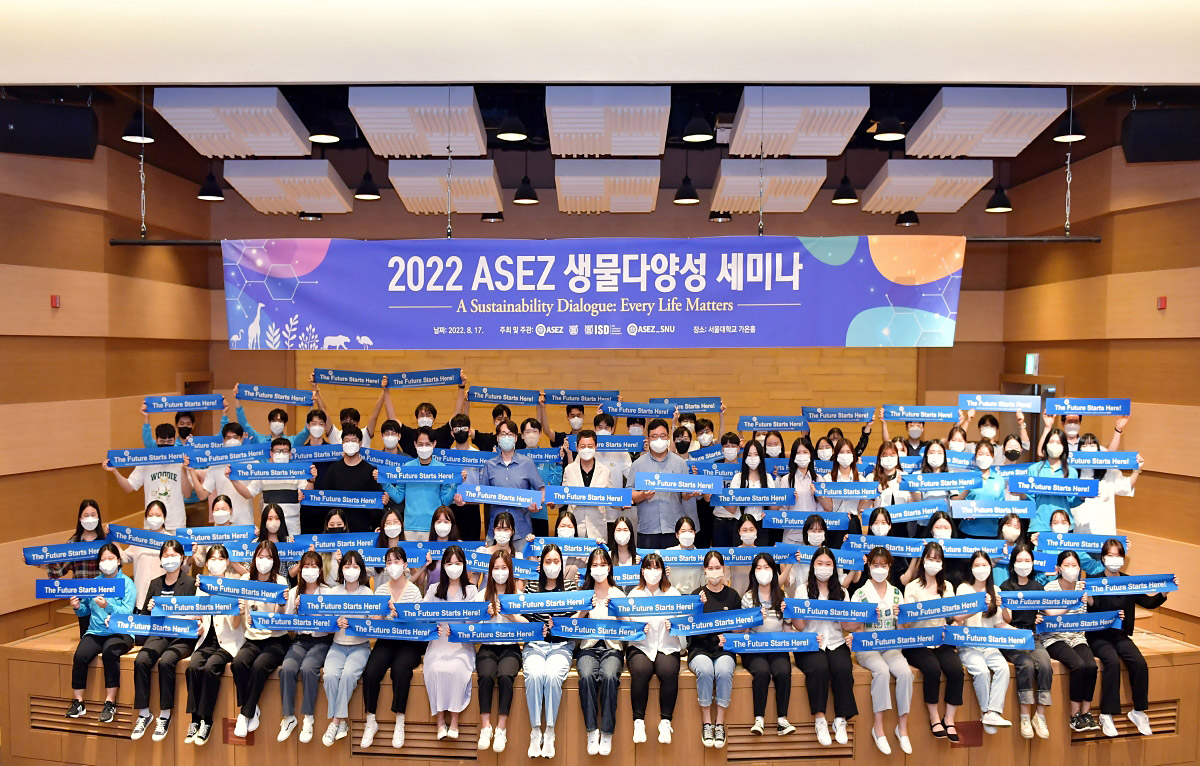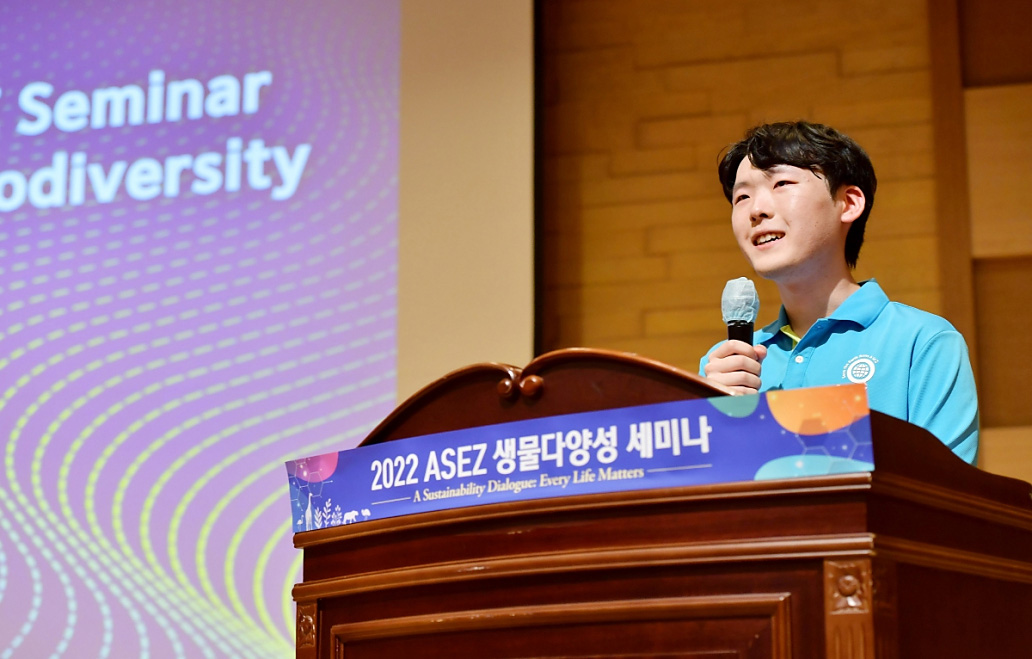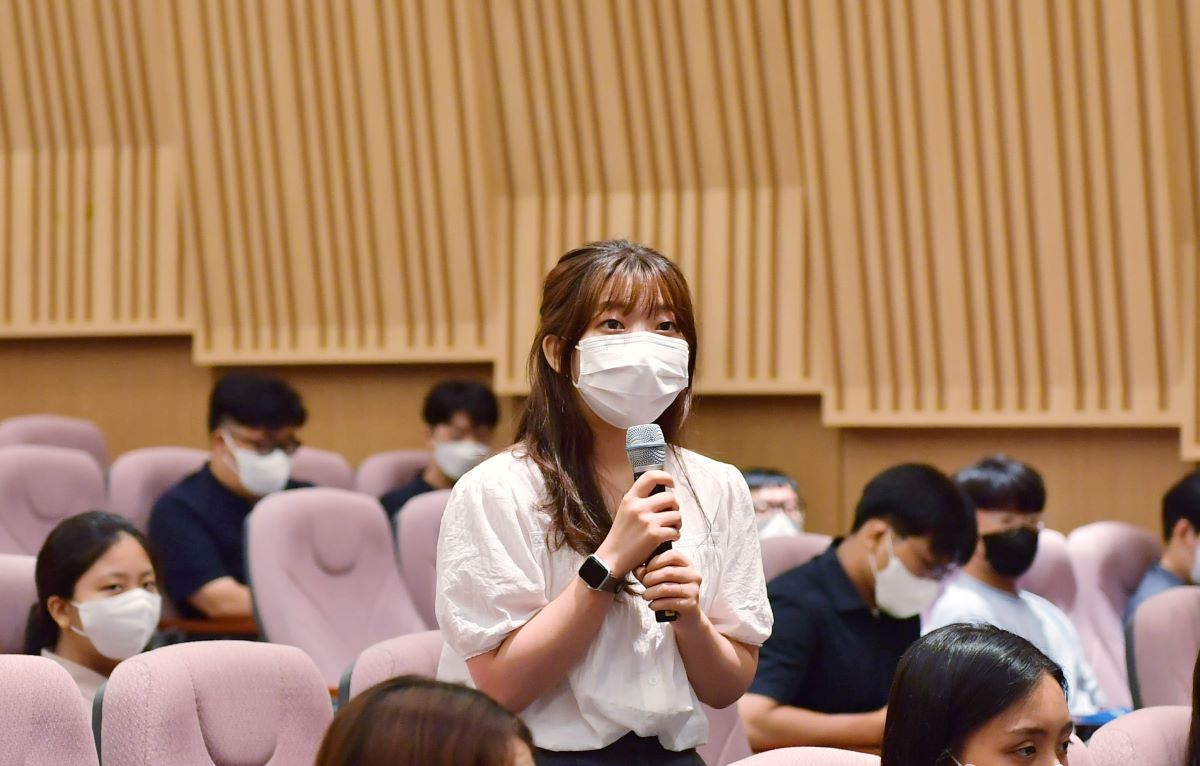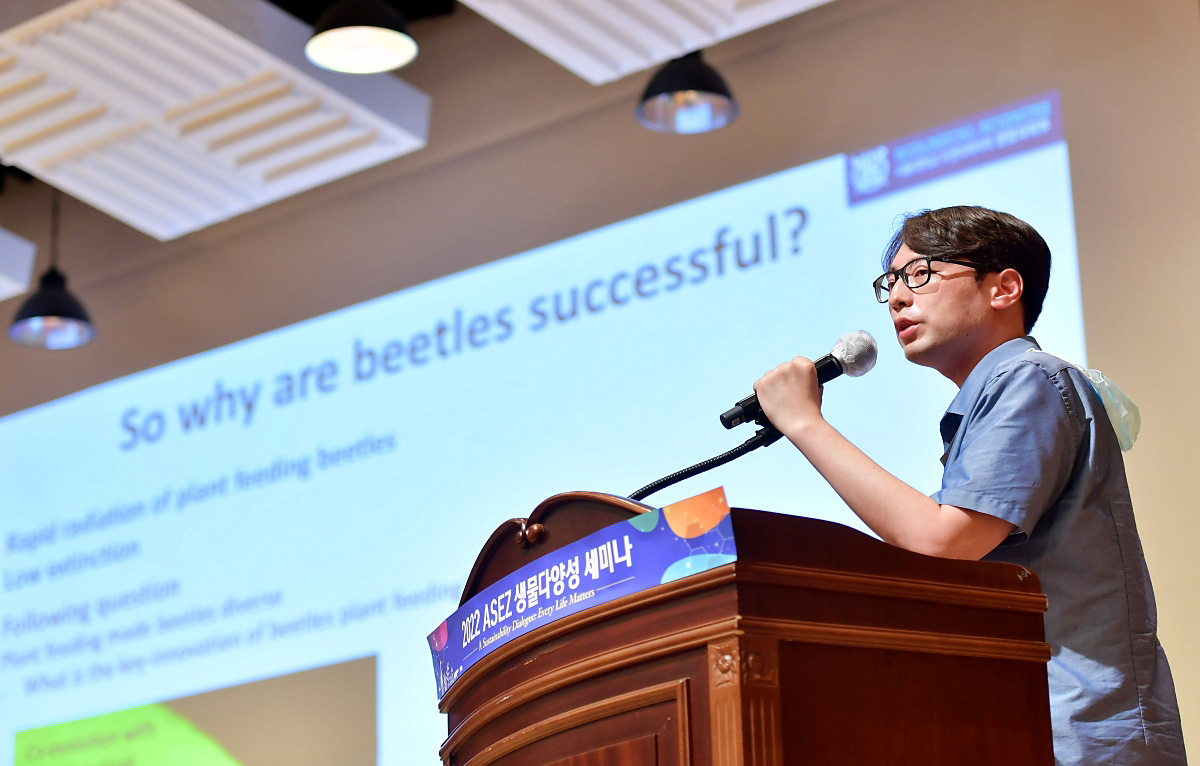
On August 17, 2022, ASEZ Seminar on Biodiversity 2022 was held at Gaon Hall, Seoul National University in the Rep. of Korea (hereinafter refers to Korea). This event was sponsored by the Seoul National University Institute for Sustainable Development [ISD] and hosted by ASEZ. It was the second seminar on biodiversity following the “ASEZ Seminar on Biodiversity 2019” held at Seoul National University two years ago. The speakers of this seminar were Lee Byeong-yoon, the Director of the Conservation Evaluation and Research Division of the National Institute of Ecology, Lee Hu-seung, a researcher from Korea Environment Institute, and Shin Seung-kwan, a professor of Biological Sciences at Seoul National University. About 100 university students confirmed the necessity of biodiversity conservation through special lectures and explored the role of university students to protect nature.


The ASEZ Seminar on Biodiversity 2022 started with a video about the “Greenship” project. The “Greenship” project is the ASEZ’s movement to keep taking actions for the nature with global citizens who have the rights and responsibility to change the world.
Afterwards, the ASEZ Choir performed a pre-ceremonial performance and speakers gave special lectures in commemoration of the ASEZ’s UNCCD Secretary-General’s Award.

Director Lee Byeong-yoon was the first speaker to give a special lecture on the topic: “Recent Trends in the Convention on Biological Diversity.” The director shared his experience in participating in the Conference of the Parties to the Convention on Biological Diversity as a delegation of the Korean government, and emphasized the need for Digital Sequencing Information [DSI] that enables fair benefit-sharing between countries rich in biological resources and countries using them. The director explained that the developed countries claim that genetic resources are simple data that are open to anyone, not for benefit-sharing specified in the Nagoya Protocol. Meanwhile the developing countries criticize that generating profits by using publicly available genetic information is bio-piracy. Explaining this, the director talked about what kind of voice Korea should have in the midst of the sharp confrontation among nations, and what roles university students, the future generations, should play.

After the lecture, a student raised the issue of delaying the discussion of biodiversity due to economic interests between countries, and asked why the biodiversity discourse fails to consider sustainable environmental conservation which is more fundamental. In response, the director too brought into question the situation of the governments of each country, which prioritizes their own economic interests over the earth, our home, saying that in fact, the future generations like the student ask the same question at the actual intergovernmental meeting. He urged to fulfill the role of the future generations for biodiversity conservation, saying, “In order for biodiversity discourse to break away from capitalism and defend the more ultimate value of environmental conservation, university students like you must take action.”

Professor Shin Seung-kwan introduced the biodiversity of beetles from a phylogenetic point of view under the theme of “Genetic Evolutionary Mechanism of Biodiversity.” He said that the biodiversity of insects, especially beetles, is more outstanding than other living things, and that they can be classified according to environmental and genetic factors.
In the Q&A session, a student asked how an experiment in releasing genetically modified mosquitoes to reduce mosquito populations in the United States could affect biodiversity. In response, Professor Shin Seung-kwan said, “The act of reducing biodiversity for any purpose is negative in the inherent sense of biodiversity. In fact, the biggest problem is that we do not know what it will bring about.” Taking the case of the lovebug outbreak which recently occurred in Eunpyeong-gu, Seoul, Korea, he emphasized that sufficient consideration is necessary before making artificial intervention in nature.

Researcher Lee Hu-seung introduced eDNA, a method for classifying and researching species in Korea, which has been carried out so far under the theme of “Next-Generation Biodiversity Assessment Centered on Species.” He explained that biodiversity can be measured with genetic material collected from environments (eDNA) such as soil, water, and forests, rather than directly extracting genetic material (DNA) from living organisms. He said that a phylogenetic tree for each major taxa of mammals, fish, reptiles, and birds in Korea has been prepared so far, however, the phylogenetic tree of insects still has a lot to be studied. After the lecture, he said that it was very meaningful to learn about Professor Shin’s research through this seminar and that he would like to conduct research with him in the future.
The ASEZ Seminar on Biodiversity 2022 brought biodiversity, which had not been noticed in climate change discourse, into the general discussion. The students, who had thought the climate change and biodiversity were separated, recognized the interrelationship between the two. Attention is paid to what kind of actions ASEZ will take for biodiversity conservation rather than just having theoretical discussions.